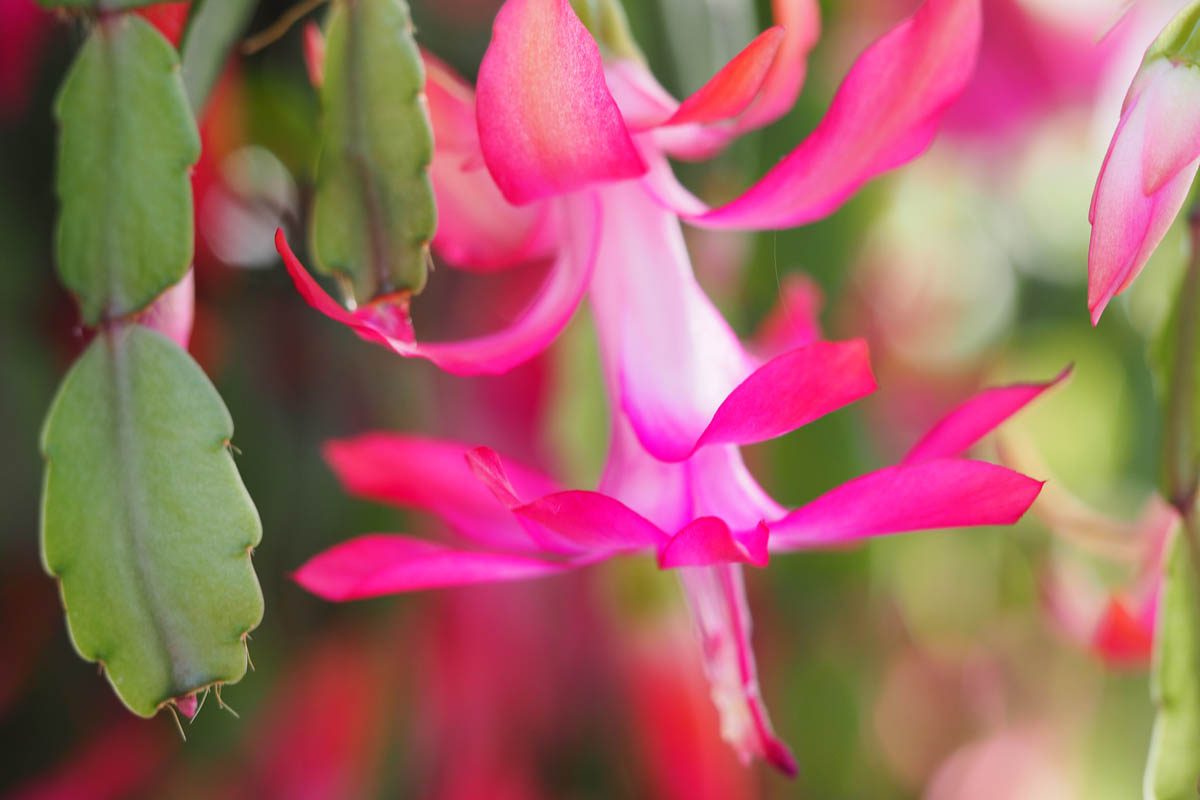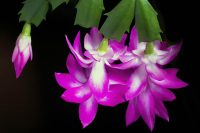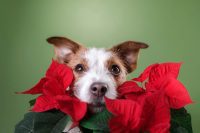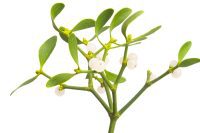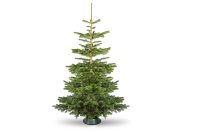Christmas cactus (Schlumbergera bridgesii) is non-toxic to dogs and can be safely grown in homes with pets, with care.
What is Christmas cactus?
| Family | Cactaceae |
| Botanical name | Schlumbergera bridgesii |
| Common names | Christmas cactus, True Chritsmas cactus, Holiday cactus, Shrimp cactus |
| Mature height | 30 cm (12 inches) |
| Flower colour |
Red, pink, purple, yellow and white |
| Leaf colour |
Green |
| Native to | South-eastern Brazil |
| Toxicity | Non-toxic to dogs |
Christmas cactus is a succulent native to the tropical rainforests of south-eastern Brazil. These plants grow on trees (epiphytic), but unlike mistletoe, they are not parasitic as they don’t take nutrients from the host tree.
The stems of Christmas cactus are flat, segmented and slightly serrated. Flowers grow at the end of the crab-like stems in red, pink, purple, yellow or white. Christmas cactus is a popular holiday plant for its bright flowers that flower over the Christmas period. It is possible to grow outside in warmer climates but is not frost-hardy.
Related plants include the Thanksgiving cactus (Schlumbergera truncate) which flowers from October to November and the Easter cactus (Schlumbergera gaertneri) which blooms from March to April.
What should I do if my dog eats Christmas cactus?
While Christmas cactus is non-toxic to dogs, large ingestions can cause gastrointestinal disturbances, although this is rare. If your dog develops loss of appetite, vomiting or diarrhea, contact a veterinarian or pet poison helpline.
Plants toxic and non-toxic to dogs?
The toxicity of the following Christmas plants can range from mild (poinsettia) to life-threatening. Even plants non-toxic to dogs can still cause gastrointestinal disturbances, and real Christmas trees can cause trauma to the mouth and GI tract if ingested. Therefore pet owners should always take care with dogs around Christmas plants. Puppies are generally at greater risk due to their curious nature.
| Balsam fir | Non-toxic |
| Blue spruce | Non-toxic |
| Douglas fir | Non-toxic |
| Fraser fir | Non-toxic |
| Holly | Toxic |
| Jerusalem cherry | Toxic |
| Lilies | Toxic |
| Poinsettia | Toxic |
| Hippeastrum | Toxic |
| Ivy | Toxic |
| Mistletoe | Toxic |
| Rosemary | Non-toxic |
| Serbian spruce | Non-toxic |
| White spruce | Non-toxic |
Julia is a writer and landscape consultant from Wollongong with a love of horticulture. She had been an avid gardener for over 30 years, collects rare variegated plants and is a home orchardist. Julia is passionate about learning and sharing her knowledge of plant propagation and plant toxicology. Whether it’s giving advice on landscape projects or sharing tips on growing, Julia enjoys helping people make their gardens flourish.
